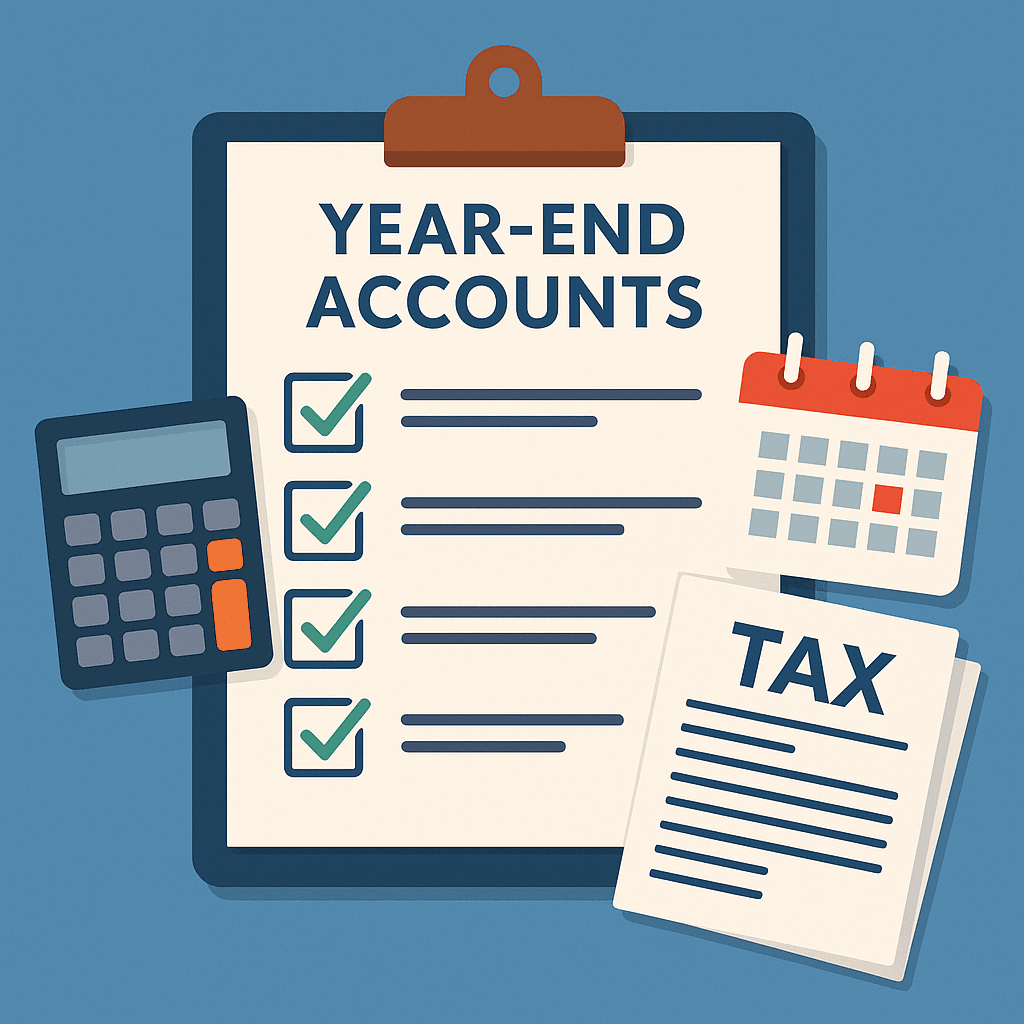As a busy entrepreneur, managing your time effectively is vital — and keeping on top of your bookkeeping can often slip down the priority list. Yet, maintaining accurate financial records is one of the most important habits for building a resilient, compliant, and tax-efficient business.
At DD Accounting, we know that most business owners aren’t accountants — and that’s perfectly fine. What matters is having a clear, simple bookkeeping schedule that fits around your business routine and keeps you in control. In this guide, we’ll show you how to create a practical, stress-free bookkeeping schedule tailored for entrepreneurs who are always on the go.
Why Bookkeeping Matters More Than You Think
Bookkeeping isn’t just about recording transactions. It supports every aspect of your business, including:
- Monitoring cash flow
- Tracking profits and losses
- Budgeting effectively
- Preparing for tax returns
- Meeting legal obligations
- Making informed decisions
- Avoiding late payment penalties from HMRC
Failing to keep timely, accurate records can lead to poor financial visibility, missed opportunities, and compliance issues — especially if you’re VAT-registered or operating as a limited company.
Step-by-Step Guide to Creating a Bookkeeping Schedule
✅ 1. Define Your Frequency: Daily, Weekly, Monthly Tasks
Break down your tasks into manageable timeframes:
Daily or Weekly Tasks:
- Upload receipts and invoices
- Record sales and income
- Reconcile transactions with bank statements
- Follow up on unpaid invoices
- File paperwork (digitally or physically)
Monthly Tasks:
- Review all transactions
- Categorise expenses correctly
- Reconcile your accounts
- Submit VAT returns (if applicable)
- Run profit and loss reports
- Set aside money for tax
Quarterly or Annually:
- Submit VAT or CIS returns (if required)
- File accounts or self-assessment returns
- Meet with your accountant for a financial review
By spacing out tasks and staying consistent, you prevent last-minute chaos and missed deadlines.
✅ 2. Choose the Right Bookkeeping Method
Depending on your business model and structure, you might choose one of the following:
- Spreadsheets – Ideal for sole traders or freelancers with limited transactions. Just be sure to back everything up.
- Cloud-based software – Tools like Xero, QuickBooks, or FreeAgent automatically import bank feeds, categorise expenses, and track cash flow in real time.
- Manual ledgers – Less common but can still work for very small operations (although less efficient and harder to scale).
At DD Accounting, we recommend cloud accounting for its time-saving automation, real-time reporting, and compatibility with Making Tax Digital (MTD) requirements.
✅ 3. Automate What You Can
Time is money — and automation is your friend. Use accounting software to automate:
- Bank feeds (automatic transaction imports)
- Recurring invoices
- Payment reminders
- VAT calculations
- Expense categorisation using rules
This allows you to focus on running your business rather than doing repetitive data entry.
✅ 4. Set Calendar Reminders and Time Blocks
Schedule bookkeeping sessions just as you would client meetings. Allocate a recurring 30–60 minute time slot weekly or fortnightly to update your records and reconcile your accounts.
Use tools like Google Calendar or project management apps (e.g. Trello or Asana) to stay accountable.
✅ 5. Keep Your Documentation Organised
HMRC requires you to keep records for at least six years, so develop a system that’s both secure and accessible:
- Store digital receipts in cloud folders (organised by month or expense type)
- Use receipt apps like Dext or AutoEntry to scan and categorise paper receipts
- Name files consistently (e.g. “2025-01-14_LaptopPurchase”)
Having everything in order will make audits, reviews, and tax returns significantly easier.
✅ 6. Track Key Metrics as You Go
Don’t just record numbers — analyse them! Monitor:
- Monthly profit or loss
- Accounts receivable (what clients owe you)
- Accounts payable (what you owe others)
- Tax liabilities (based on income and expenses)
- Budget vs. actual figures
This real-time insight will empower you to pivot quickly, especially during slow periods or economic uncertainty.
✅ 7. Don’t Delay — Delegate
If your business is growing or your time is stretched, outsourcing your bookkeeping can be a game-changer. A professional bookkeeper ensures compliance, accuracy, and efficiency — and frees up your time to focus on growth.
At DD Accounting, we offer flexible bookkeeping solutions tailored to your schedule and budget, giving you peace of mind that everything is handled correctly.
Common Mistakes to Avoid
- Leaving everything until the end of the tax year
- Relying solely on bank statements without proper categorisation
- Forgetting to track petty cash and reimbursements
- Mixing personal and business transactions
- Not backing up your records
Being proactive with your schedule helps you avoid these costly slip-ups.
A Little Effort Goes a Long Way
Setting up a bookkeeping schedule doesn’t have to be time-consuming — it just needs to be consistent. With the right structure, tools, and support, you’ll spend less time worrying about finances and more time building your business.
Whether you’re a sole trader, limited company, or partnership, DD Accounting is here to help you implement a reliable, practical bookkeeping routine that keeps you compliant and financially informed.




